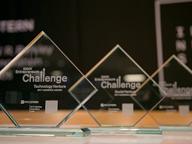Faculty News
—
The Dunning-Kruger effect, joint research by Professor Justin Kruger, is featured
—

Excerpt from Bloomberg View -- "Named after psychologists David Dunning and Justin Kruger, the effect describes the way people who are the least competent at a task often rate their skills as exceptionally high because they are too ignorant to know what it would mean to have the skill."
Faculty News
—

Excerpt from Bloomberg View -- "Named after psychologists David Dunning and Justin Kruger, the effect describes the way people who are the least competent at a task often rate their skills as exceptionally high because they are too ignorant to know what it would mean to have the skill."














